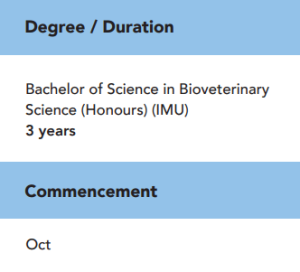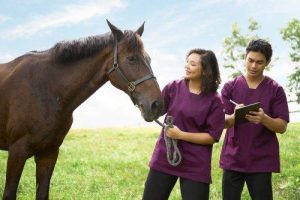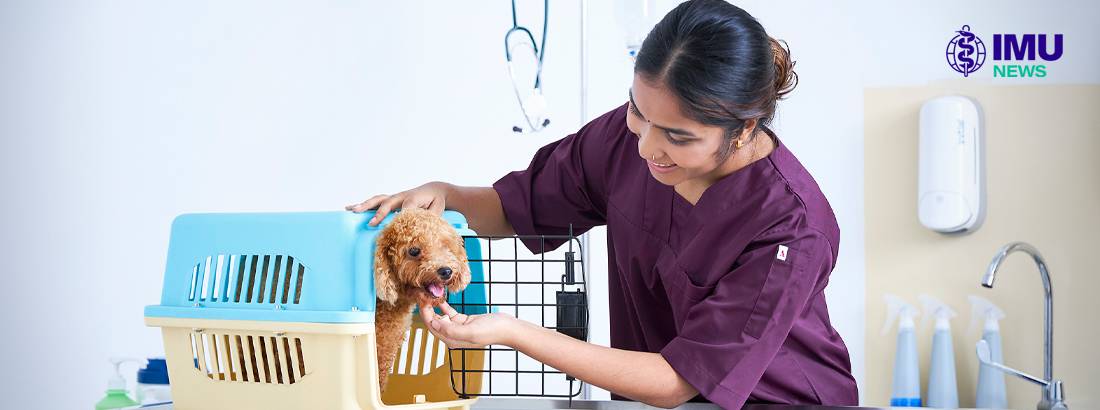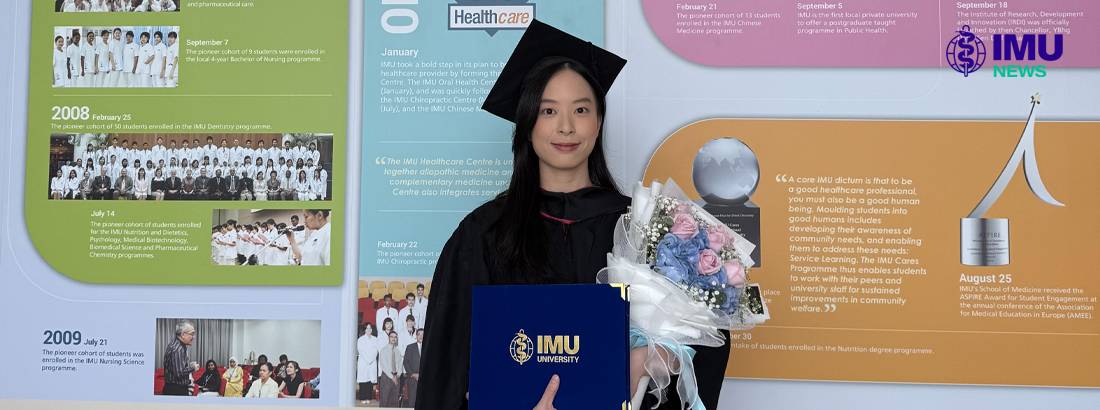IMU’s vision of being an “innovative global centre of excellence in learning and research intended to serve society” is in alignment with its ‘One Health Concept (prioritising Human, Animal and Environmental Health)”. With the various academic programmes that IMU has established for human health studies, the team sees potential synergies and opportunities for IMU to build capacity and expertise in animal health studies.
With this in mind, the Bioveterinary Sciences programme was established as a strategic and contextually needed starting point, complementing IMU’s mission to lead in educational excellence by providing a multidisciplinary training in higher education. The programme aims to bridge the gap between the demand for qualified veterinary paraprofessionals and the shortage of veterinarian surgeons by offering comprehensive training and education in bioveterinary sciences.

Scholarship
To celebrate the launch of this new programme, we are offering an inaugural bursary of RM30,000 which will be deducted equally from Semester 2 onwards. This is your golden opportunity to start your career in bioveterinary science
Career Pathways
Bioveterinary science, a dynamic and ever-evolving field, has become increasingly crucial in the modern world, serving as a vital bridge between the realms of biology and veterinary medicine. This multifaceted discipline encompasses the application of cutting-edge biotechnologies, information and communication technologies, and digital innovations to the care and management of animal health.

As the world grapples with evolving consumer demands, trade regulations, and the increasing need for preventive measures in animal health and food production, the role of bioveterinary science professionals has become increasingly vital. They are poised to play a pivotal role in shaping the future of animal health, food security, and environmental sustainability.
It offers diverse career pathways, including:
Animal Welfare and Conservation Officers
Professionals who will be responsible for animal conservation, welfare, policy governance, and public education.
Assistant Veterinary and Research Officers
Paraprofessionals in the public and private sectors who contribute to policymaking and governance in animal health, food industry, and public health sectors.
Large Animal Farm Managers
Professionals who will be responsible for farm planning and management. They also support breeding programmes and genetic pool conservation.
Veterinary Practice Managers
Veterinary paraprofessionals who support veterinarians in clinical practice and veterinary technicians managing administrative tasks, scheduling appointments, maintaining records, financial planning, and maintaining clinical practice husbandry standards. They will also be Petcare consultants who will educate clients on basic pet care and nutritional needs.
Animal Behaviourists
Animal Behaviourists specialise in understanding and modifying animal behaviour. They work closely with veterinarians to address behavioural issues and provide animal training and enrichment programmes.
Animal Nutritionists
Professionals who are responsible for feed formulations and care for the nutritional aspects of feeding healthy and sick animals.
Laboratory Animal Technicians
Professionals who will be responsible for managing animal colonies, performing routine laboratory procedures, and collecting data to support biomedical research.
The diversity of career paths in bioveterinary science reflects the field’s growing importance in addressing the multifaceted challenges facing the veterinary and animal health sectors.
The integration of information and communication technologies has become a crucial aspect of modern veterinary practice, offering new opportunities for disease surveillance, animal traceability, and clinical decision-making. These technological advancements have also paved the way for innovative approaches to animal welfare, conservation, and food safety.
The bioveterinary science field presents a dynamic and multifaceted career landscape, offering opportunities for individuals with diverse interests and skill sets to contribute to the well-being of animals, communities, and the planet as a whole. Remember its not just a job it’s a calling.

About The Programme
The IMU Bioveterinary Science programme is a comprehensive 3-year, 6-semester programme designed to equip students with the necessary skills and knowledge to become successful bioveterinary professionals. The programme’s modular curriculum covers a wide range of topics, including husbandry and handling, professional skills, system-based approaches to pathology, physiology, parasitology, bacteriology, and virology, as well as the importance of food security in line with the One Health concept.
First Two Semesters
Students are introduced to the fundamental aspects of bioveterinary science, with a focus on animal handling, professional development, and a system-based approach to various biological disciplines. The programme then transitions to clinical practice and trade practice, as well as research design and methodology in the third semester, providing students with a well-rounded understanding of the practical application of their knowledge.
Fourth Semester
This semester delves deeper into system-based modules, exposing students to the integration of technology, engineering, and data science in animal health and production.
Fifth Semester
This semester emphasises communication, business skills, management, regulatory affairs, pharmacological prescribing practices, and nursing care, ensuring that students are prepared for the multifaceted nature of the bioveterinary profession.
Throughout the programme, the One Health concept is woven into the curriculum, highlighting the importance of the interconnectedness between human, animal, and environmental health. This holistic approach equips students with a comprehensive understanding of the bioveterinary field, aligning with the industry’s growing emphasis on the One Health paradigm.
Final Semester
Students will undertake a short research project and write their final year dissertation. They will also complete an industry internship, allowing them to gain hands-on experience and a deeper understanding of what it means to be a bioveterinary professional in the real world. This industry-led exposure and training ensures that students are job-ready and well-prepared to make meaningful contributions to the bioveterinary sector.
The IMU Bioveterinary Science programme’s modular and innovative curriculum is designed to address the evolving needs of the bioveterinary industry. By providing a balanced blend of theoretical knowledge and practical skills, the programme aims to produce highly competent and versatile bioveterinary professionals who are well-prepared to navigate the challenges and opportunities in the field.






